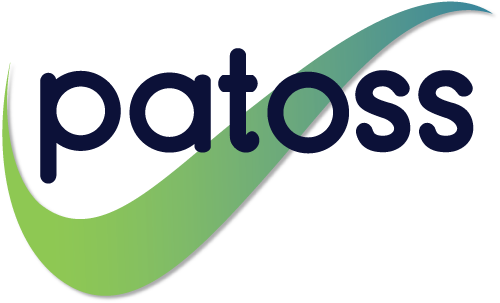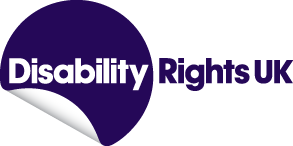Louise Green Ltd
Specialist Teacher SpLD and Dyslexia Assessments, Training and Consultancy
Definitions and Resources
Dyslexia
The Delphi Dyslexia Study issued a new definition of dyslexia in the Journal of Child Psychology and Psychiatry in February 2025:
- Dyslexia is a set of processing difficulties that affect the acquisition of reading and spelling.
- In dyslexia, some or all aspects of literacy attainment are weak in relation to age, standard teaching and instruction, and level of other attainments.
- Across languages and age groups, difficulties in reading fluency and spelling are a key marker of dyslexia.
- Dyslexic difficulties exist on a continuum and can be experienced to various degrees of severity.
- The nature and developmental trajectory of dyslexia depend on multiple genetic and environmental influences.
- Dyslexia can affect the acquisition of other skills, such as mathematics, reading comprehension, or learning another language.
- The most commonly observed cognitive impairment in dyslexia is a difficulty in phonological processing (i.e. in phonological awareness, phonological processing speed or phonological memory). However, phonological difficulties do not fully explain the variability that is observed.
- Working memory, processing speed, and orthographic skills can contribute to the impact of dyslexia.
- Dyslexia frequently co-occurs with one or more other developmental difficulties, including developmental language disorder, dyscalculia, ADHD, and developmental coordination disorder.
The International Dyslexia Association define dyslexia as:
- Dyslexia is a specific learning disability that is neurobiological in origin. It is characterised by difficulties with accurate and/or fluent word recognition and by poor spelling and decoding abilities. These difficulties typically result for a deficit in the phonological component of language that is often unexpected in relation to other cognitive abilities and the provision of effective classroom instruction.
- Secondary consequences may include problems in reading comprehension and reduced reading experience that can impede growth of vocabulary and background knowledge.
The following definition of dyslexia is taken from Identifying and Teaching Children and
Young People with Dyslexia and Literacy Difficulties, an independent report from Sir Jim
Rose to the Secretary of State (2009):
- Dyslexia is a learning difficulty that primarily affects the skills involved in accurate and fluent word reading and spelling.
- Characteristic features of dyslexia are difficulties in phonological awareness, verbal memory and verbal processing speed.
- Dyslexia occurs across the range of intellectual abilities.
- It is best thought of as a continuum, not a distinct category, and there are no clear cut-off points.
- Co-occurring difficulties may be seen in aspects of language, motor co-ordination, mental calculation, concentration and personal organisation, but these are not, by themselves, markers of dyslexia.
- A good indication of the severity and persistence of dyslexic difficulties can be gained by examining how the individual responds or has responded to well-founded intervention.
This definition of dyslexia was adopted by the British Dyslexia Association (BDA) Management Board with the addition of the further paragraph shown below:
- Dyslexia is a specific learning difficulty that mainly affects the development of literacy and language related skills. It is likely to be present at birth and to be life-long in its effects. It is characterised by difficulties with phonological processing, rapid naming, working memory, processing speed, and the automatic development of skills that may not match up to an individual’s other cognitive abilities.
- In addition to these characteristics, the BDA acknowledges the visual and auditory processing difficulties that some individuals with dyslexia can experience, and points out that dyslexic readers can show a combination of abilities and difficulties that affect the learning process. Some also have strengths in other areas, such as design, problem solving, creative skills, interactive skills and oral skills.
Dyspraxia/Developmental Co-ordination Disorder (DCD)
The 2018 UK definition of Developmental Co-ordination Disorder (DCD)/ Dyspraxia appears on the SpLD Assessment Standards Committee (SASC) website – www.sasc.org.uk
DCD, also known as Dyspraxia in the UK, is a common disorder affecting movement and coordination in children, young people and adults. DCD is distinct from other motor disorders, such as Cerebral Palsy and stroke, and occurs across the range of intellectual abilities. This lifelong condition is formally recognised by international organisations including the World Health Organisation.
The person’s coordination difficulties will affect functioning in everyday activities including in the classroom, at work and in leisure activities. There may be differences in how the person learns new skills at home and in education, work and in leisure activities. Difficulties may vary in their presentation and will also change depending on environmental demands, life experience, and the support provided. Many of the movement and coordination difficulties will continue into adolescence and adulthood. Although the motor difficulties persist throughout life, non-motor difficulties may become more prominent as expectations and demands change over time.
There are a range of co-occurring non-motor difficulties which can have a
substantial adverse impact on daily life. These may include social and emotional difficulties as well as problems with time management, planning and personal organisation, and these may also affect a person’s education or employment experiences. However, with appropriate recognition, reasonable adjustments and support, people with DCD can be very successful in their lives.
BOOKS
- Specific Learning Difficulties – What teachers need to know – Diana Hudson published by Jessica Kingsley Publishers
- Study Skills: A Pupil's Survival Guide by Ostler, Christine (ISBN: 9781869866105)
- Dyslexia in Secondary School: A Practical Handbook for Teachers, Parents and Students - Jenny Cogan and Mary Flecker published by Wiley
- How to Succeed with Specific Learning Difficulties at College and University: A Guide for Students, Educators & Parents by Amanda Kirby published by Souvenir Press (E&A) Ltd 2014
- Study Skills for Dyslexic Students edited by Sandra Hargreaves, published by Sage Publications
- Support for Learning Differences in HE: the essential practitioners' manual by Price & Skinner published by Trentham Books
- Study Skills: The complete guide to smart learning by Elizabeth Holtom, published by Galore Park
- How Dyslexics Learn – Kate Saunders & Annie White published by Patoss
- Making Dyslexia Work for You – Vicki Goodwin and Bonita Thomson published by David Fulton Publishers
- Living with Dyspraxia – Mary Colley published by Pearson Education
- Guide to Dyspraxia and Developmental Coordination Disorders – Amanda Kirby & Sharon Drew published by David Fulton Publishers
- Caged in Chaos – Victoria Biggs published by Jessica Kingsley Publishers
For the future workplace:
- How to Succeed in Employment with Specific Learning Difficulties: A Guide for Employees and Employers by Amanda Kirby published by Souvenir Press (E&A) Ltd 201

The Joint Council for Qualifications (JCQ) is a UK-based community interest company that represents eight major qualification providers, including AQA, CCEA, City & Guilds, Edexcel, NCFE, OCR, SQA, and WJEC. It acts as a unified voice for these organizations, overseeing standards for GCSE, GCE, Scottish Highers, and vocational qualifications. JCQ ensures consistent examination administration, monitors invigilation, and supports examination officers. It’s distinct from Ofqual, which regulates and accredits exam boards.

The SpLD Assessment Standards Committee (SASC) is a representative organisation for professionally qualified diagnostic assessors of specific learning difficulties (SpLD). SASC members work to agreed standards of practice, established collaboratively by the organisation.
SASC was first established in 2005 when a working group comprising SpLD practitioners and Department for Education representatives met to consider what would constitute acceptable evidence of SpLD for a student to qualify for the Disabled Students’ Allowance (DSA). Since 2005 SASC has extended its remit to become an advisory and regulatory body for practitioner assessors of SpLD.

Patoss is the professional association of teachers of students with specific learning difficulties, for all those concerned with the teaching and support of pupils with SpLD, for example: dyslexic, dyspraxic, dyscalculic, ADHD. Membership is open to qualified teachers in SpLD and those studying for either the certificate or the diploma in SpLD. We also offer supporting and corporate memberships.

Exam Access Arrangements
Exams can be challenging, but for students with special educational needs and disabilities, they can present additional barriers. To ensure that everyone has a fair chance to succeed, access arrangements are available. These are adjustments made before or during exams to help reduce any disadvantage you might face.
Specialist SpLD and Dyslexia Assessment, Training and Consultancy
Diagnostic assessments for all ages from primary school students to adults